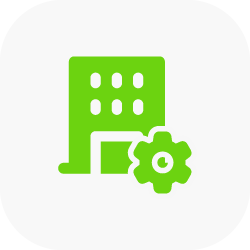
Why companies use an office sharing app
 Contents
Contents
Not long ago, the office was a place where everyone had their own desk, and being present daily was simply how things were done. Today, the landscape has changed. Experts report that the average American employee now works from home two days a week. This shift to hybrid work has reshaped not just how we work, but also how offices are designed and used.
1. Using an office sharing app
This trend has pushed many businesses to rethink how they manage office space. Workspace reservation systems are becoming an essential tool, offering smarter ways to stay organised. But what makes these systems so appealing, and what benefits do they bring?
2. Benefits
Office sharing apps are a win-win for both employees and employers. With employees working from home several days a week, it’s helpful to know if there is enough space available when coming to the office. Through an app, employees can check if a workspace is free, if it has the equipment needed for their work that day, and see which colleagues will be in the office. This ensures every trip to the office is productive and stress-free.
3. Useful insights
Employers can gain important information about office use with analysis tools like those from Flexwhere. What are the busiest days in the office? Are workspaces being fully utilised? These insights help businesses optimise their space. For instance, if certain areas are consistently underused, turning off lights or adjusting heating can significantly cut costs. Some companies might even consider resizing their office, saving on rent without sacrificing efficiency.
4. Meeting rooms
The role of the office has evolved. It’s now a hub for collaboration, team meetings, and connecting with clients. Tasks that require focus, like responding to emails or drafting reports, are often done from home. This makes reserving meeting spaces crucial. Flexwhere makes it easy for employees to book meeting rooms, ensuring productive sessions without interruptions.
Conclusion:
Hybrid work has transformed office use, making workspace reservation systems like Flexwhere essential. They help employees plan productive office days while giving employers insights to optimise space and reduce costs, ensuring offices remain efficient hubs for collaboration.























.png)

%20(1).png)


